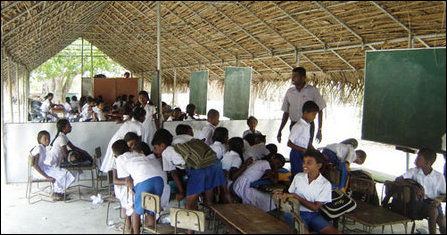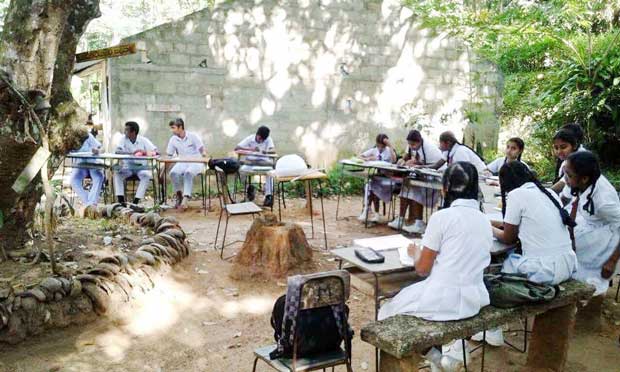Sri Lanka has one of the world’s best literacy rates. The reason behind the high literacy rate is the education system. Sri Lanka possesses one of the best education systems in the world. Nonetheless, this system, too, has holes that make is lessthan perfect. People usually talk about the schools owned by the government and the schools located in Colombo. People seldom talk about schools that are situated in rural areas and villages.

Issues that have been risen in the education system in rural areas
The main concern in the rural areas and the education system is the scarcity of tutors and teachers. Rural areas are called by the name because of the lack of facilities. Most of these schools lack the learning facilities and necessities. Children do not find it as a problem as they are accustomed to the place and are being brought up in the area since birth. Hence, lack of transport, medicine, or facilities does not appear big in their sight.
When government-trained teachers get appointments to these rural areas, which is mostly the case, it is not very easy for them to get used to the system in rural areas. Most teachers who get appointed to rural areas are not from these areas. Adapting the surroundings and managing with minimum supplies can be a huge challenge to them. These challenges make teachers request for transfers and cancellations.
The situation where teachers are unable to cope up with fewer facilities and living conditions they ask for transfers, resulting in the school to have a scarcity of teachers. This is the reason why many rural schools do not have a sufficient number of teachers to educate children. We can often see that the principal, too, is going from one classroom to the other to teach. Lack of tutors is one of the major concerns in the education system in rural areas.
There is also an attendance drop in rural schools as the grades go higher. Female students often have to take care of the household and learn the house chores as they grow up. This prevents them from freely going to school. Male students end up going for work to support the family financially, thus dropping education before completing. As the secondary education level starts, we can see a drastic drop in the school’s attendance due to these reasons.
Basic needs are hard to fulfill in rural areas. Most children whose families are financially challenged, do not have enough nourishment to uphold their growth. They end up having problems in memorizing and concentration in the class because of lack of food.
Loopholes in other schools
While rural schools have problems of their own, schools in the capital also have loopholes that need immediate attention. The biggest concern in these schools is their addiction to illegal consumables such as drugs and other sedatives in various forms. A lot of children are affected by their own families. Parents often get too busy to attend to their children. Most of the children undergo traumatic experiences with their parents’ divorces, separations, or quarrels.
Financial statues are at the two extremes. The same classroom can have both kinds of students. The inability to afford school fees or school supplies can affect a student quite severely. While the affluent crowd wastes money on wants (not needs), the other set of children try to manage their basic needs and supplies.

The solution to all loopholes in the Sri Lankan Education System
Many Foundations come forward to fill the gap between the education system and the students. Buddhika Kadurugamuwa Foundation is one such organization that focuses on supplying the learning materials and supplies to rural schools while arranging workshops and reforms in other schools.

